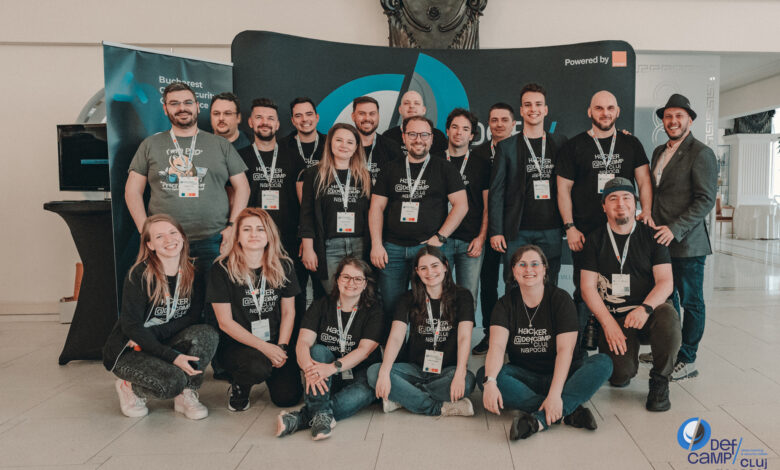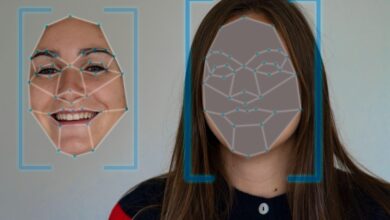DefCamp Cluj-Napoca was a real success with 400+ participants and 30 speakers discussing cybersecurity challenges

The DefCamp cybersecurity conference, held for the first time in Cluj-Napoca between May 16-17, gathered over 400 participants who attended sessions from 30 Romanian and international speakers. Industry leaders and experts provided valuable insights and practical advice on the role of AI in cybersecurity, deepfake, zero-days, cryptography, malware detection, and ransomware, as well as numerous examples and case studies.
Hasain Alshakarti, an internationally recognized cybersecurity expert with 25 years of experience in the field, shared with the audience valuable resources related to cyber-attacks, mitigation strategies, detection, and analysis in his sessions, “A Hacker Just Logged in” and “Tales from incident response: Unmasking the Treat Actor’s Inner Sanctum”. Another highly appreciated speech was the one from Jayson E. Street, world-renowned expert and hacker who breaks security to educate about cybersecurity, on the impact of AI on cybersecurity was also highly appreciated. The complete list of those who took the DefCamp Cluj-Napoca stage can be found HERE.
“The event was a real success, appreciated by the local community for the quality of interactions and presentations. The diverse agenda, which included sessions on artificial intelligence concepts “Secure by Design”, “Threat Hunting”, “Malware analysis”, and “Cloud Security”, provided valuable opportunities for discussions on current challenges in the field of cybersecurity. We are happy that we were able to facilitate the creation of new and relevant connections, thus contributing to strengthening the cybersecurity ecosystem”, said Andrei Avădănei, founder of DefCamp.
Topics related to AI and automation technologies, their impact on the industry, and the evolution of cyber threats were among the main highlights. “AI is not the enemy, but the main tool that will help us in our work”, “education is the key, both personally and professionally”, and “it’s time to open our minds and adopt this technological revolution on a large scale”, were just some of the reactions shared by DefCamp Cluj-Napoca participants on the LinkedIn platform.
“DefCamp has put Cluj-Napoca on the European cybersecurity map. The attendance of over 400 participants shows the need for Cluj-Napoca to have such events dedicated to the cybersecurity industry. We are glad that we collaborated with renowned specialists in the field to debate relevant and current industry topics at DefCamp Cluj. The dynamics of this event give us the motivation to take our projects even further, and we are confident that through them, we contribute to the development of a strong cybersecurity community in one of the most effervescent cities in the country”, said Tudor Damian, coordinator of DefCamp Cluj-Napoca.
During the two-day event, DefCamp Cluj-Napoca hosted competitions and practical activities in the Hacking Village, which generated a lot of interest, being the first time such hacking events took place in Cluj. The average was 30 participants per competition, and they had the opportunity to apply their knowledge in real scenarios and expand their learning experience. In the end, 18 winners were chosen for the 6 Hacking Village activities:
- Bitstream Breakout, where participants tested their knowledge about FPGAs (Field Programmable Gate Array), a configurable digital integrated circuit;
- Untangle the Spectrum, where participants tested their knowledge about WiFi, Bluetooth Low Energy (BLE), and User Datagram Protocol (UDP);
- Memory Leak, where participants attempted to intercept memory reads via I2C and gain access to an elusive UART protocol;
- DevOps Ninja, a competition that tested code security review skills, ranging from basic automation tasks to complex orchestrations and optimizations and programming languages;
- Invisible Threats, where participants analyzed network packages to understand encryption methods used by the 802.11 protocol.
- Reverse Engineering Kindergarten, a competition designed to improve binary code reverse engineering skills, an essential skill for those responsible for software security or malware analysis.
The DefCamp Cluj-Napoca 2024 event was organized by the Romanian Information Security Research Center Association (CCSIR), powered by Orange Romania. The list of supporters for this edition also included Bit Sentinel, D3 Cyber , and Cyberlifehacks as Platinum partners.






